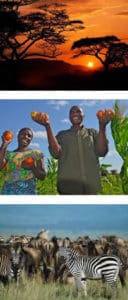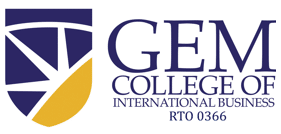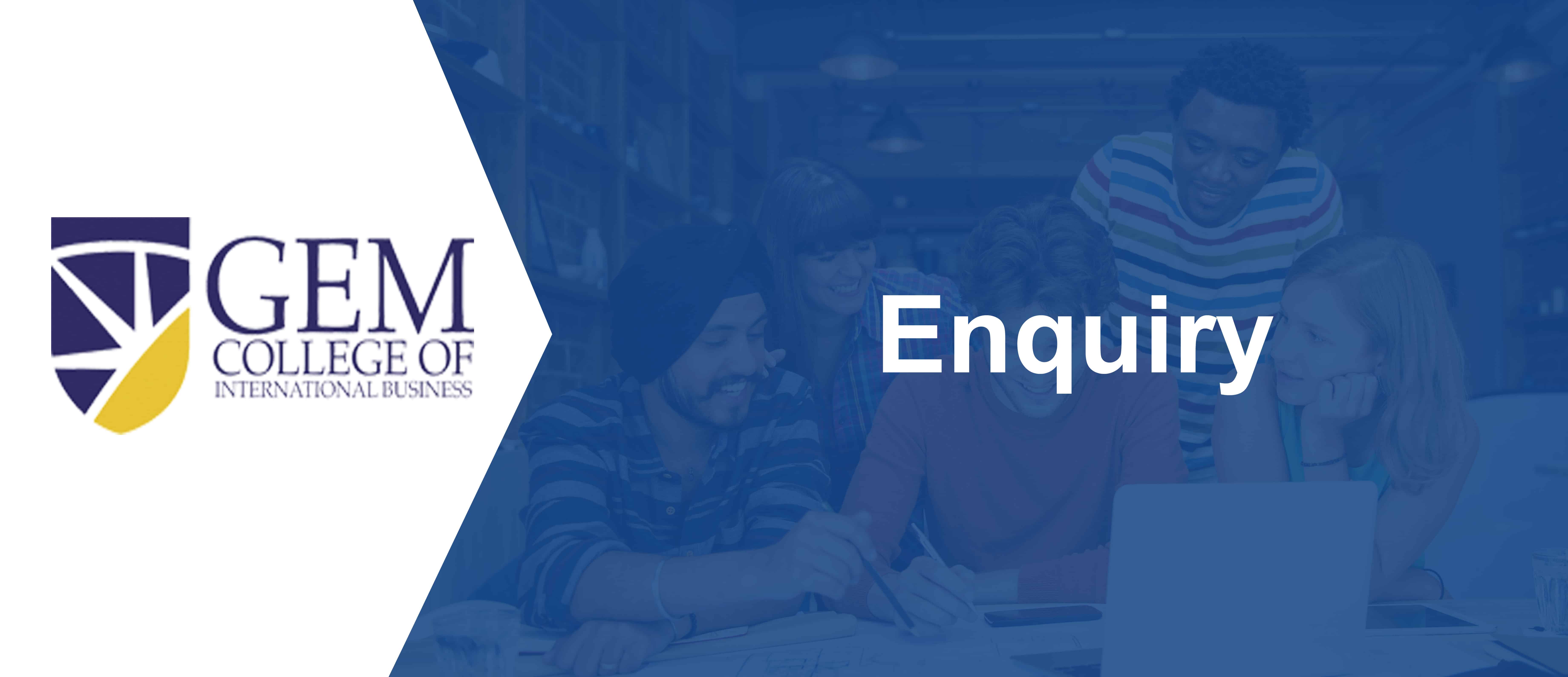Dodoma Campus - Tanzanite
Dodoma Campus - Tanzanite Africa
General Introduction
In 2001, Directors of GEM College of International Business travelled to Dodoma, Tanzania and saw first hand a number of educational institutions including the Canon Andreas Mwake Anglican School and a School for the Deaf, established by Mr Robin Donkersgoed, that had been established in a village outside Dodoma.
In 2005 Mr Donkersgoed, assisted by the EOTAS Foundation, expanded activities by founding the Dodoma Deaf School in 2005 in the suburb of Kisasa, 5 km east of the Dodoma centre.
Having seen the work first hand, the Directors of GEM College of International Business are delighted to be co-operating with Mr Donkersgoed, and the EOTAS Foundation, in establishing the GEM College of International Business (Tanzanite) campus.
GEM College of International Business Resources
The extensive resources of the GEM College of International Business provides a solid base for vocational training to begin.
Some courses will require translations, and the Virtual Classroom will link Deaf students in Dodoma with Schools for the Hearing Impaired in Australia and elsewhere – providing a different insight to life as a hearing impaired person, from what the students are currently exposed to
The Online Campus enables students to progress at their own pace, and releases the teacher/trainer to be able to give individual attention to the learner that may not have understood very well.
All courses are presented in well laid out, logical order. Learners can go over the content time and again, and enjoy the interactivity of the programs.
In addition to the personal and professional short courses, GEM can offer qualifications based on nationally recognized training, creating an academic and career paths for the students that have previously been inaccessible.
Sustainability
The beauty of the GEM College of International Business resources is that they are constantly being updated and thus, the materials remain current. Updates are done on line. The principles, and competency standards of a Unit do not change significantly, therefore once a training program is fully established it will need little additional work in the future, and learners in Tanzania will be able to access content whenever they need to.
It is envisaged that GEM College of International Business will extend to deliver training and education to hearing students. It will also be able to provide employer groups with high quality education and training programs in OHSW, Team Skills, Information Technology and so on, and they in turn will open their doors to work experience students from the GEM College of International Business (Tanzanite) and provide employment opportunities. Thus, the GEM College of International Business and EOTAS partnership will become:-
- An education provider
- A “social leveller”
- An “income generator”
- A work experience provider
- An employment provider; and
- An economic development agent
Have you considered going to Africa?
You can volunteer to work at the Deaf School in Dodoma. There’s something for everyone. Whether assisting with administration, construction, mechanics, teaching deaf children, training in the GEM College of International Business (Tanzanite) campus – you can have a life changing experience. Accommodation available. Click here to get a feel for the Dodoma School for the Deaf.
Welcome
Tanzania is a unique country with many resources and opportunities. However these opportunities are not easily available to most people due to lack of good quality education which contains not just theoretical skills, but also practical skills, good work ethics and a good client orientation.
 The GEM College of International Business (Tanzanite) Campus in Dodoma is unique amongst the global network of GEM Campuses. The GEM Tanzanite Campus has been specifically set up initially for a complete quality educational path for deaf and hard of hearing young people in order to build a solid dignified future for themselves.The GEM Tanzanite Campus offers vocational education and training to secondary students to complement their preparation for the workforce, and to school leavers as they embark on their life journey.
The GEM College of International Business (Tanzanite) Campus in Dodoma is unique amongst the global network of GEM Campuses. The GEM Tanzanite Campus has been specifically set up initially for a complete quality educational path for deaf and hard of hearing young people in order to build a solid dignified future for themselves.The GEM Tanzanite Campus offers vocational education and training to secondary students to complement their preparation for the workforce, and to school leavers as they embark on their life journey.Thus, we are not only equipping the hearing impaired to become truly self-reliant, but we are empowering entrepreneurs and building a diverse community, with tolerance, acceptance and mutual respect.
 GEM Tanzanite Campus is underpinned by the GEM Online Campus, which offers over 740 self paced personal and professional development courses and over 25 distinct qualifications from early entry to Advanced Diploma courses. It is our intention to establish the GEM Business Network, which will see business leaders and managers coming together to enhance their businesses and careers through exposure to the GEM Educational Resources, and to share their expertise with one another, to build a stronger business community in Dodoma and beyond.
GEM Tanzanite Campus is underpinned by the GEM Online Campus, which offers over 740 self paced personal and professional development courses and over 25 distinct qualifications from early entry to Advanced Diploma courses. It is our intention to establish the GEM Business Network, which will see business leaders and managers coming together to enhance their businesses and careers through exposure to the GEM Educational Resources, and to share their expertise with one another, to build a stronger business community in Dodoma and beyond.All Learners are expected to work hard and aim for the best possible results they can achieve, so that together, we may build a better nation.
Robin Donkersgoed
GEM Executive Director
Here you can define the content that will be placed within the current tab.
About Dodoma Campus

Dodoma is the national capital of Tanzania and has a population of about 350,000 people.
Dodoma is populated by different ethnic groups because it is a government administrative centre, with Gogo, Rangi and Sandawe the key indigenous ethnic groups. There are also small Arab and Indian minorities, a residual of the construction of the Tanzanian central railway by German colonists in 1907.
In 1973, the Tanzanian government announce that the capital would be moved from Dar Es Salaam to the more central location of Dodoma, to better serve the needs of the people.
As a nodal point, with an established town and major transport networks, an agreeable climate, impressive landscape, and plenty of room for development, Dodoma was a great choice.
A major highway connects Dodoma with the former capital of Dar es Salaam via the Morogoro region in the east. To the west, roads lead to Mwanza and Kogoma via Tabora.
The Great North Road links the city with Arusha to the north (gateway to the Ngorogoro crater and Serengeti Plains).
The city is also served by the Central railway line which connects it over a distance of 465 kilometres (289 mi) with Dar es Salaam in the east.
Dodoma is an education centre.
The Anglican Church owns the only international school in Dodoma: Canon Andrea Mwaka School, which provides quality education to children. The school offers students the IGCSE examinations which are set from London and marked there as well. An estimated 220 students are taught and a majority of teachers are well trained and from abroad.
Dodoma has two universities: St Johns University of Tanzania, owned by the Anglican Church of Tanzania, and the University of Dodoma, which currently has over 25,000 students, and is projected to have a over 40,000 students by 2015. Both universities officially opened in 2007
GEM College of International Business (Tanzanite) campus will complement the region, with the provision of vocational education and training qualifications.
About Tanzania

Tanzania is a country in East Africa. It is bordered by Kenya and Uganda in the north; Rwanda, Burundi, and the Democratic Republic of the Congo in the west, and Zambia, Malawi and Mozambique in the south.
Mount Kilimanjaro, Africa’s highest mountain, is in Tanzania.
The name “Tanzania” has come from the names of two former countries, Tanganyika and Zanzibar, which united in 1964 to form one country.
EOTAS symbolizes the history of Tanzania with its struggles and triumphs, its victories and its peace.
Tanzania has a perfect location, with the Indian Ocean to the East, Tanzania’s weather and climate is magnificent. Warm and sunny days are followed by cool and balmy nights – perfect for travelling on safari in the Serengeti Plains or in Ngorogoro crater, or sailing off the tropical beaches of Zanzibar.
Tanzania is a land of contrasts, with a vast number of people and tribes whose varied cultures and traditions make up the rich tapestry of the Tanzanian culture, which includes the Maasai culture, the Indian culture, customs of the Swahili Coast and numerous people groups.
Tanzanians enjoy a climate of freedom and peace during daily lives, and value community and togetherness very highly. Religion is an expression of community and culture, and one that binds all citizens, not only to their country but others around them. Tanzanians practice Christianity, Islamic, and traditional African religions in tolerance and understanding.
While religion defines different communities and an individual sense of identity for the Tanzanians, culturally, they are all Tanzanians, with culture and traditions expressed in all the surroundings, including handicraft specialties.
Visitors to Tanzania enjoy shopping in modern malls, bazaars and local marketplaces.
If you haven’t been to Tanzania – you should come!
The famous Mt. Kilimanjaro, the Ngorongoro Crater, the Serengeti Plains and the spice Island of Zanzibar are all splendid environments to have a relaxing and yet exciting holiday.
The Region of Tanga is adorned by a splendid environment, with spectacular landscape, unique culture and obliging people. Explorers including Vasco da Gama, Arab and Indian, settlements trading activities, the slave trade, the advent of the Germans Colonists and finally British rule have all left their mark, and all make for an interesting milieu.
Available Courses
The following table summarises the Accredited Qualifications that may be offered by GEM College of International Business. Our key focus is on Certificate IV, Diploma, Advanced Diploma, Graduate Certificate and Graduate Diploma programs.
| COURSE NAME | COURSE TIMEFRAME |
| Certificate III in Recordkeeping | 2 year program commencing 1st September 2019 |
| Certificate IV in Business | 2 year program commencing 1st September 2020 |
| Certificate IV in New Small Business | 2 year program commencing 1st September 2019 |
| Certificate IV in Recordkeeping | 2 year program commencing 1st September 2020 |
| Diploma of Business | 3 year program commencing 1st September 2020 |
Committee
Migration
About EOTAS

EOTAS has its head office in the Netherlands and works closely with the partner EOTAS-Tz, which has been a registered Non Government Organisation (NGO) in Tanzania since 1999.
In 2006 the registration of EOTAS-Tz moved from being a local NGO to being registered as an International NGO.
EOTAS has provided daily management for the school during the initial construction and registration phase.
In 2011, the Dodoma Deaf School was transferred to the Anglican Church in Dodoma (DCT). The DCT takes care of the daily management and cooperation with the local authorities. EOTAS provides support for special services, vocational training and construction on a project basis. EOTAS has a target of 150 pupils receiving sustainable quality education.
Having seen the work first hand, the Directors of GEM College of International Business (Global) and Workright Australia are delighted to be associated with Mr Robin Donkersgoed, and the EOTAS Foundation in Dodoma, Tanzania, in establishing the GEM College of International Business (Tanzanite).
Vision statement
EOTAS Foundation views that all children with a disability have equal rights to get good quality education within their own community. EOTAS endeavours to create a positive working and learning environment for staff and pupils respectively in order that all can achieve to the best of their ability.
Mission statement
EOTAS Foundation aims to provide equal opportunities in Tanzania for both boys and girls, and young adults with special needs in obtaining gainful, independent self- or wage-employment, through appropriate training followed by a Supported Employment Program.
Sources of funding
The EOTAS Foundation solely relies on donors to sponsor and support its core activities. The organisation also manages six quality residential apartments in Dodoma, from which the returns are utilised for the running of the Dodoma Deaf school.
Since 2002, EOTAS has been building long-term relationships with international partners who have a role in providing various resources including money, expertise and people. These relationships have been established on the base of mutual respect, integrity and accountability.
EOTAS Goal
The EOTAS goal has been to see deaf young people in Tanzania become skilled at their subject/trade of choice, through comprehensive and suitable training programs.
Background
Tanzania does not have suitably documented training programs for deaf children. Often outdated books are used in the classrooms, or the teachers use the knowledge in their head only. This knowledge is written onto the blackboard and then copied by the pupils. In addition the vocational subjects are all in English only and this has made it inaccessible for deaf children. Training programs for each subject has needed to be written specifically for deaf children. It has been essential that everything be translated into readily understandable language for the students. The children become active participants through the use of worksheets.
Resources
There has been a serious shortage of books and other reference material at the school. All materials have had to be sourced from other schools and bookshops, which were often outdated and unsuitable. Other resources have had to be purchased from bookshops in Dar es Salaam, with pupils copying information from the blackboard. Considerable time is wasted by the teacher, writing on the blackboard and waiting for the pupils to copy the information. When diagrams are drawn on the blackboard, they are often not as clear as if they were prepared properly on paper before the lessons.
Intervention
To create a usable training program, materials, tools and documentation are required. New resources for the deaf children need to be developed. This process requires understanding of subject matter, communication methods and presentation specific for the deaf children. Information will be translated into suitable Kiswahili with the aid of text and pictures, which will be tested in the classroom with the children.
Training programs are built up out of modules, equivalent to one year’s study. Design and development of training programs is undertaken in consultation to ensure the information is current.
GEM College of International Business Resources
The extensive resources of the GEM College of International Business provides a solid base for translation work to begin.
Initial translations of the personal and professional development training materials will be undertaken through technology. Then a human translator will go through and correct the nuances of language that have escaped the technology’s capabilities.
In addition to the training materials that can be translated, the Virtual Classroom can tap Deaf students in Dodoma with Schools for the Hearing Impaired in Australia and elsewhere.
The Online Campus enables students to progress at their own pace, and releases the teacher/trainer to be able to give individual attention to the learner that may not have understood very well.
All courses are presented in well laid out, logical order. Learners can go over the content time and again, and enjoy the interactivity of the programs.
In addition to the personal and professional short courses, GEM can offer fully accredited courses to the students, creating an academic and a career path for the students that has previously been inaccessible.
Implementation
GEM makes implementation swifter and easier for EOTAS. Full trades or traineeship type qualifications will generally be completed in 3-4 years.
Sustainability
The beauty of the GEM College of International Business resources is that they are constantly being updated and thus, the materials remain current. Updates are done on line. The principles, and competency standards of a Unit do not change significantly, therefore once a training program is fully established it will need little additional work in the future, and learners in Tanzania will be able to access content whenever they need to.
It is envisaged that GEM College of International Business will extend to deliver training and education to hearing students. It will also be able to provide employer groups with high quality education and training programs in OHSW, Team Skills, Information Technology and so on, and they in turn will open their doors to work experience students from the GEM College of International Business (Tanzanite) and provide employment opportunities. Thus, the GEM College of International Business and EOTAS partnership will become:-
- An education provider
- A “social leveller”
- An “income generator”
- A work experience provider
- An employment provider
- An economic development agent
and EOTAS will become a self sustaining educational institution.
Please contact the friendly GEM College Team with any enquiries:

